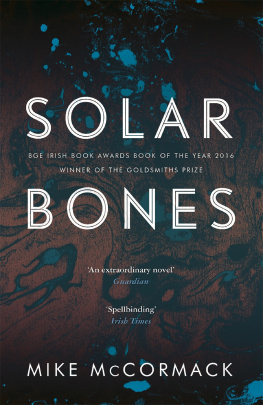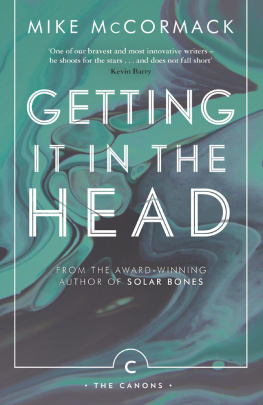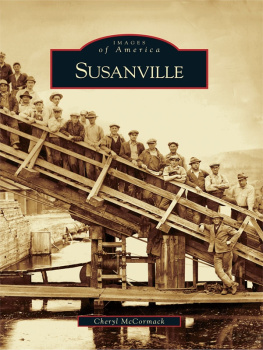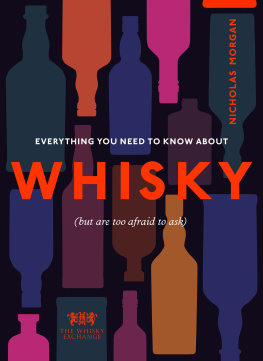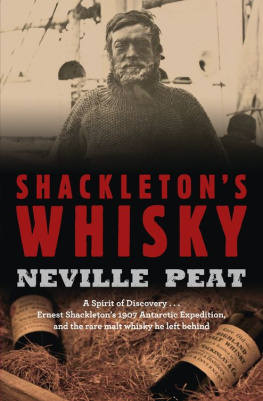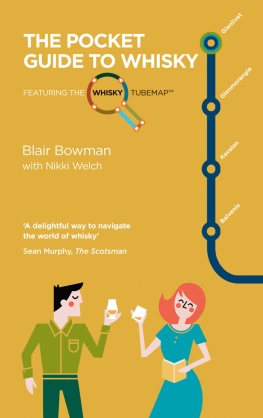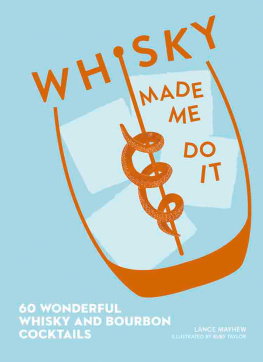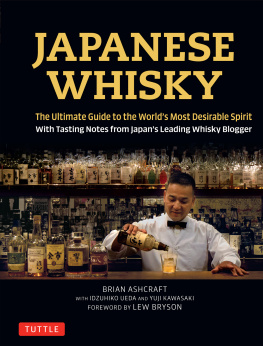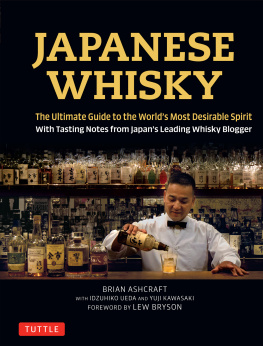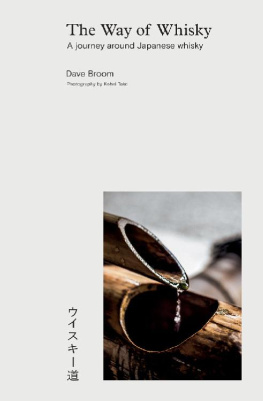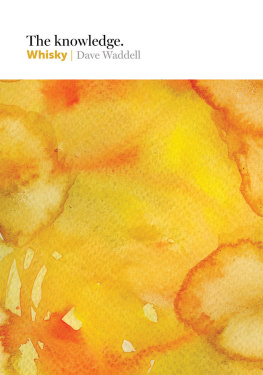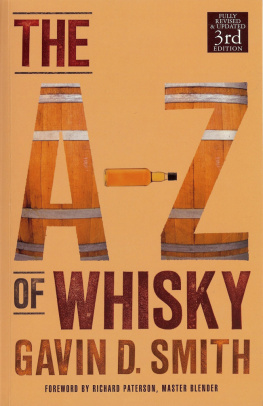To Andr Dang, without whom this book
would never have been conceived
I NTRODUCTION
So, I got another rejection for my book on Spain, Dad. It seems that theres no market for a Spanish cookbook in the UK. No one buys them.
Thats not good.
No, but I gave my agent another idea and publishers seem to like this one.
Uh-huh. And whats that one on?
Cooking and whisky.
Cooking and whisky? Like malt whisky? Like the stuff youve been drinking since you were 15 and I would give you in hot toddies for your colds?
Yes, Dad, that stuff.
And they want you to write a book on that?
It seems so.
And theyll pay you for it?
So it would appear.
Aye, well thats no bad, is it?
Despite a Catholic upbringing, my father, like almost all Scots, is a cultural Presbyterian. This Presbyterianism makes us a people who could never be accused of exaggerated enthusiasm about ourselves or others.
A friend from Manchester once said to me that I wasnt a person who gave out a lot of compliments. I was highly insulted as I had told him only three months previously that having one of his poems inscribed onto a wall in a Yorkshire university building complete with a big ceremonial unveiling was really quite good. I mean, what more did he want?
I think it may be something that is either put in the water or what happens when you get rained on as often as we do. A Hindu from Edinburgh was once telling me about a contract she was about to complete. I asked her if she was excited about it. Well yes, she said. But the Edinburgh Presbyterian in me wont believe it until its signed and the money is in the bank.
You can be Catholic, Hindu, Muslim, Jewish or atheist Scot, but part of you will always be Presbyterian. With this information in mind you have to return to my fathers phrase, Aye, thats no bad, is it?
This, for a postwar West of Scotland man, is the highest compliment that could be paid to anyone about anything. No bad is way beyond Californian awesome. Its awesome with chest bumps, high-fiving, running around like an aeroplane, screaming woohoo and generally making a rather loud spectacle of yourself. No bad, in short, is quite good.
The above, I feel, constitutes fair warning as to the contents of this book. It will not be full of praise and glory and, unless a burning bush talks to me on a hill on the Isle of Arran, the word awesome will not be applied to anything. But whisky is good, and some bottles are better than others. Food is good. Mostly. I mean even when foods rubbish its reasonably good as it keeps you from starvation. Combined they could be no bad at all.
The first time I left Scotland, aged 19, I went to Spain with every intention of becoming Spanish and never, ever going back. In the years I lived there, mostly in Barcelona, I learned all about the food, the culture and two of the languages. It became my calling card when I moved to London; it got me my first job there and then, when I went into the world of food and drink, Spanish, and particularly Catalan, food was what I became known for. If you ever hear a Scottish woman on the radio who seems to know a lot about Spanish and Catalan food, itll be me.
It was eight years ago that I left Scotland for a second time and moved south. London is a funny city. It is the most international and cosmopolitan yet utterly small and parochial place I have ever lived in. It is, often quite rightly, the focus of blame by the rest of the UK for its absorbing centralism, its stranglehold of UK cultural and political power and being virtually the only place with decent jobs.
The thing is, there is a sense of possibility in London that other places dont have. You can do things here. If you live on a Highland croft your life revolves around doing any and all jobs to be able to stay where you want to live. London offers rubbish and hideously expensive places to live in, but also a chance to do things you cant do anywhere else. You have to decide what payoff you want, and for how long.
In the years since I left for London, both the political and gastronomic landscapes of Scotland have changed irrevocably. And while I can watch the former easily online and it often looks far more fractious than it is in reality on the ground one cannot eat or drink via a computer screen. Theres a whisky explosion going on, with new boutique distillers opening and big distilleries are creating new lines all the time.
I want to go and see what is happening with whisky and I want to put it in food. Whisky in Scotland is like heat in Australia its everywhere. Whisky production is the third biggest industry after oil and technology and there are 118 working distilleries, with another 30 being built across the country at the moment. Its exports earn 125 every second and it directly employs over 10,000 people.
The GMB union estimates that 120,000 jobs UK-wide are connected with whisky production and export and at least 7,000 of these are in rural areas where other work is hard to find. Everyone in Scotland has some connection with whisky, even if they think they dont: their school was opposite a whisky companys office; they live near a whisky warehouse; they pass a distillery on their way to work. Its unavoidable.
While most of the whisky we make is exported, Scots still account for about 20 per cent of the UKs whisky consumption. For every dram an English or Welsh person has, someone in Scotland has two. Whisky in Scotland is more than a drink. People identify with it as part of them, far more than the English do gin and more than the Spanish do wine.
Whenever Scots go abroad whisky is the first thing that foreigners mention. When I went to live in Spain all anyone did on meeting me was ask which whisky they should buy. I knew from my father that they had to buy a malt and I knew that his favourite malt was Macallan, so that is what I told them.
The first year I lived there I had a flatmate who was a great connoisseur of wines and spirits, but he told me he didnt like whisky. I refused to believe this. No one could like the range of rums that he did and not like whisky; he just hadnt tried the right one. I told him to wait until my father came over with some Macallan. When my father arrived on a visit, Ramn dutifully sat there and took some whisky, trying not to screw up his face in disgust. He then got a proper whiff and looked really shocked. He tried it, held up the glass to his eyes to get a better look, raised his eyebrows, looked at my father and me and said: Well.
He took another sip: That... well that... is... really good.
During the remainder of my time in Spain, I became a whisky and wine mule between Ramn and my father, taking wine back to Scotland and different types of malt whisky to Spain for Ramn. I took him Talisker, Auchentoshan, Bowmore, and when I moved home to Scotland I would bring him still more whisky on my trips back to Barcelona. His favourite thing ever was a Glenmorangie tasting glass with a glass lid, which I still see in its box in his house whenever I visit.
Scotch whisky ranges in price in the UK from 10 for a 70cl bottle of supermarket label blended whisky, to 150,000 for a 54-year-old bottle of black Bowmore. There is something for everyone who drinks alcohol within that price range, although if you only like bottles at around the 100k price mark I suggest you find a less expensive hobby, like collecting vintage cars or transatlantic yacht racing.
Whisky has garnered a small army of passionate advocates among the great and the good. In a 1978 episode of the Radio 4 programme Desert Island Discs , the late Labour peer Manny Shinwell chose a case of Scotch whisky as his luxury to keep him going while marooned on a tropical island.


